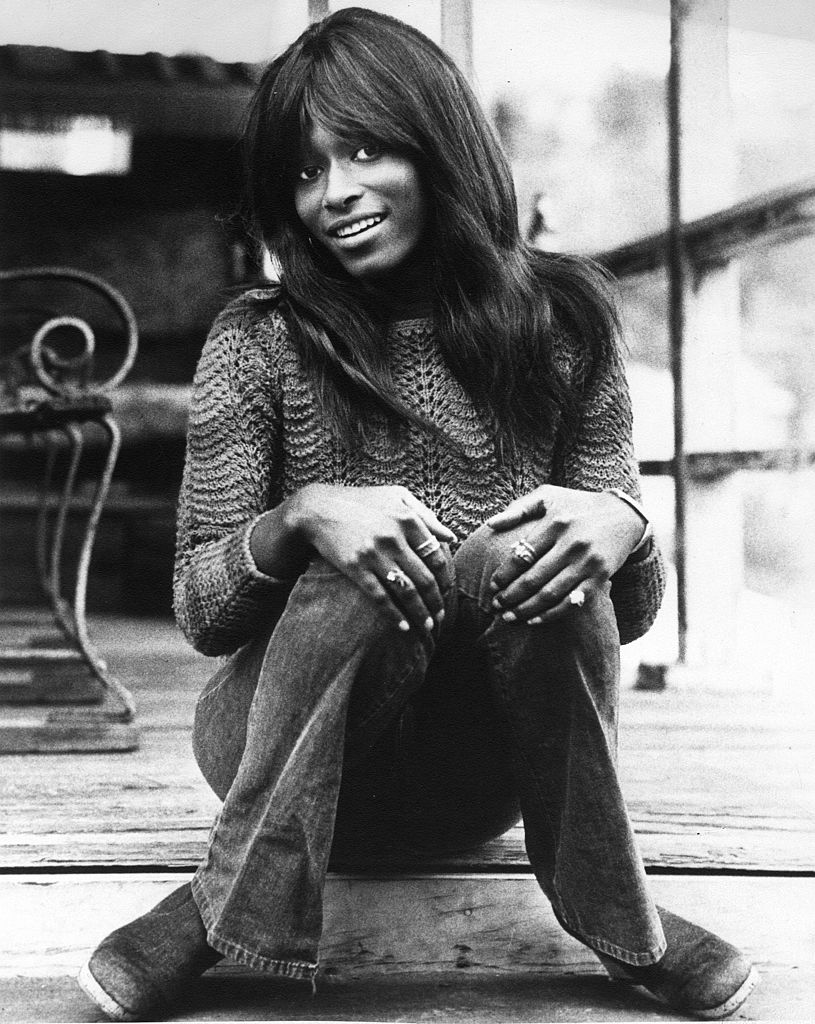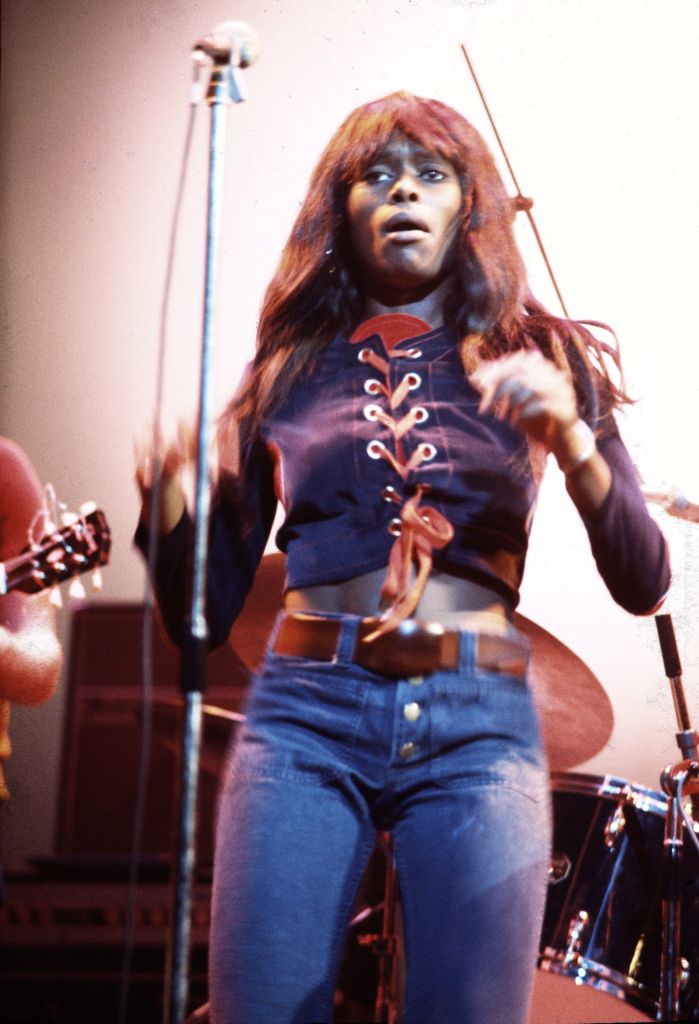Claudia Lennear has been a witness to some peak moments in rock and soul. First as a member of the Ike & Tina Turner Revue, she’s sung backup on classic recordings and toured the world, shared stages with former Beatles and Bob Dylan, and was the inspiration behind David Bowie’s torrid 1972 epic “Lady Grinning Soul.”
Just as famously, Lennear has been widely credited as the inspiration behind the Rolling Stones’ increasingly controversial classic rocker “Brown Sugar.” Founding bassist Bill Wyman confirmed her role in one of his books, and she’s always taken pride in that, calling the track “one of the greatest rock songs of all time, and not because I had anything to do with it.”
Lennear was still an Ikette when she dated Stones frontman Mick Jagger in 1969, the same period the song was written and recorded. Another African American woman, Marsha Hunt, who is the mother of Jagger’s first child, has also said she is the source of inspiration. The Stones singer has publicly confirmed nothing.
More controversial are the song’s lascivious lyrics that were outrageous even at the time, depicting a highly charged tale of slavery in the Antebellum South, rape, cunnilingus, heroin, whips, a houseboy, dancing and general midnight rambling: “Brown Sugar, how come you taste so good? … just like a young girl should.”
In 2021, a new wave of scrutiny of that content led the Stones to remove the song from its tour setlist for the first time in nearly 50 years. “I don’t want to get into conflicts with all of this shit,” guitarist Keith Richards told the Los Angeles Times of this year’s U.S. tour dates, which concluded this week. “But I’m hoping that we’ll be able to resurrect the babe in her glory somewhere along the track.”

Lennear understands the outrage, but still regrets seeing the song leave the Stones live repertoire, even temporarily. Fans at the band’s recent concerts were “missing out on a great part of rock & roll history. When do we learn to understand history without getting upset? Right now we’re not really in that space.”
“I’m sensitive, but when it comes to poetic license, I let go,” she adds. “It’s just a great riff. It’s a great hook. Keith Richards plays those first two notes, everyone is on their feet, everybody’s clapping, dancing, singing. When I hear it, my first thought is: long live the Rolling Stones.”
The ongoing interest and controversy over “Brown Sugar” is just one episode from a celebrated career, singing background for a long line of major artists, and as one of the vocalists included in the 2013 Oscar-winning documentary 20 Feet from Stardom. One life-changing event was performing as part of George Harrison’s Concert for Bangladesh in 1971, rock music’s first major live charity event more than a decade before Live Aid.
“Good lord, every household name in pop music was there,” she says, adding that it would be difficult to “work with Billy Preston, Leon Russell, Ringo Starr, George Harrison, Eric Clapton and Bob Dylan all on the same stage and not come out of there enlightened.”

Lennear is currently back on the big screen in Learning To Live Together: The Return of Mad Dogs & Englishmen, a documentary on the legacy of Joe Cocker’s freewheeling 1970 tour. Directed by Jesse Lauter, the new film combines vintage footage with scenes from a 2015 reunion of the surviving players led by the Tedeschi Trucks Band.
A tour of screenings of Learning to Live Together across the U.S. continues through mid-December, recounting a live revue of a fiery young group of rock and soul players, led by musical director Leon Russell.
One searing moment from Learning to Live Together is a duet between Lennear and Russell on Bob Dylan’s “Girl from the North Country,” as they trade glances of affection and respect, mingling gospel and soul. “When he consented to do that duet with me, oh, I was just levitating,” says Lennear, who was also a onetime member of Leon Russell & the Shelter People in the early-’70s.
The film is a vivid reminder of the quirky, enigmatic showman’s command and ease onstage, behind the piano, guitar or microphone. At Russell’s 2011 induction to the Rock and Roll Hall of Fame, Elton John called him “the master of space and time.” Russell died in 2016.
“Leon Russell was the consummate rock bandleader,” Lennear remembers. “He just knew what he was doing. Everybody just let him take the reins.”
Lennear grew up in Rhode Island, then came to Los Angeles and joined a local doo-wop group called the Superbs. After being recruited into the Ikettes, she connected with the Stones, Bowie, Russell, Stephen Stills, and many others, leading her down a path of random experiences, one connection and gig leading to the next.
“I’ve looked back over my career, and it’s like, ‘Wow, I couldn’t have planned that,’” Lennear says. “If you’re in the right place at the right time, and you’re ready to seize an opportunity, you get on the horse and go ride.”
Despite her friendships with Jagger and Richards, Lennear only participated in one Stones recording sessions — for “Star Star,” a leering tribute to groupies originally titled “Starfucker,” from 1973’s Goats Head Soup. She didn’t love the lyrics but sang “from a professional standpoint.”
The singer still performs, and also teaches college courses in languages (she’s multi-lingual) and is working on a memoir. She has a lot of material to work with.
She first met David Bowie in 1968 in a London nightclub, but grew close to him during his first American tour four years later. “We were destined for each other way before the Big Bang,” says Lennear, who dated Bowie during that tour. “That’s when he was wearing dresses and all that. I don’t know what attracted me to David, except he was just so good to look at. He was so sweet and quiet and reserved.”
When she appeared in 20 Feet from Stardom, Lennear was in a limo en route to the Independent Spirit Awards when her phone rang. On the line was a familiar, distinctive British voice: “Claudia?” It was Bowie calling to congratulate her on the film and to reconnect after decades of silence.
They kept in touch and Bowie even suggested he produce an album for her. “At this point, I had no idea he was sick,” she explains. “He says, ‘For starters, I’ll do the music, you do the lyrics.’ So that’s we set out to do.” Bowie died in 2016, before they were able to get into a studio together.
But during one of their later conversations, Bowie did finally volunteer that he’d written “Lady Grinning Soul” about her. It wasn’t her first time hearing something like that.
“You know, David will not be outdone by a Rolling Stone,” Lennear says affectionately. “If a Rolling Stone says that they wrote a song about me, he’s not to be left behind. He’s too competitive.”

Leave a comment